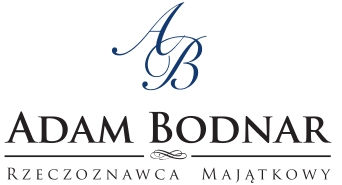An essay could be defined as a literary work that communicates its author’s point of view, typically through writing, by way of texts. The history of the essay extends back to the late 18th century. An essay may also be defined as a written function that gives vent to one’s emotions, normally in an individual or academic context. The history of this essay is, in nature, vague, encompassing most of those of a newspaper, a book, an address, pamphlets, and even a short story. Essays are also traditionally been categorized as formal and casual, but over time the formal style has gained ground over the casual style. As there’s absolutely no established standard on what constitutes an article, there are a range of different kinds of essay.
A well-known form of the essay is your argumentative composition, also referred to as the persuasive composition. This form of essay is built upon an intricate arrangement, which consists of three chief elements, namely, an introduction, the main body of the essay, along with the end. The debut of the essay is intended to pull in the reader, and is accomplished through introducing the thesis statement, also known as the central point. The thesis statement is a statement, which offers a starting point for the remainder of the essay.
Second, the rest of the article is structured around the thesis statement, by which the writer intends to argue the case for his/her remarks. In the end, at the end, the article considers the outcome as well as the conclusion, drawing together all the arguments presented throughout the course of the essay. Argumentative essay examples include these functions as Locke’s Essay Concerning Human Understanding, seller’s Essay About Criticism and Essay on Man. Within the field of business writing, the most usual kinds of argumentative essay are the review article, argumentative essay examples such as The Business Case for Innovation and Profit Generation, and essay addressing issues in advertising study, including the debate essay. In academic writing, the most frequent format is that of an argumentative essay, which comprises either a personal or group perspective composition.
The next kind of essay, called the summary essay, is similar to a summary of an issue or subject. An outline is a very short overview of an essay, giving an overall idea of what the composition has to offer you. It doesn’t provide the corretor de texto virgula final detail of a problem or argument, and is used as a guide, rather than as a full- blown investigation or investigation. The most frequently used format for a summary essay is that of one citation needed to support the principal article. Other formats are also available, including combinations of citations plus a main article (e.g., an article on agriculture and company, or an informative article on the factors involved in selecting between contractors).
The next most frequent format for an essay about a specific issue is that of a essay regarding corretor ortografico literature. The literature generally refers to a specific genre, such as literary studies, creative writing, or theatre studies. The most typical essay about literature is a biography, which generally takes the kind of a composition about a particular author, focusing on some key works or noteworthy accomplishments. Biographies are incredibly useful for presenting history information about the author and normally cover a time period from their birth to the present. Other examples of literary biographies include works by authors like Aristotle and Shakespeare.
The fourth most frequent manner of essay, closely related to the preceding three, is that of the discussion article. This is where an individual or set of people argue a specific subject or thesis statement. They utilize all manner of literary devices and arguments to support the debate that they are backing. Argument essay is usually used to support a particular political standpoint, express an opinion about a given topic, or to present some scientific evidence about a topic.
